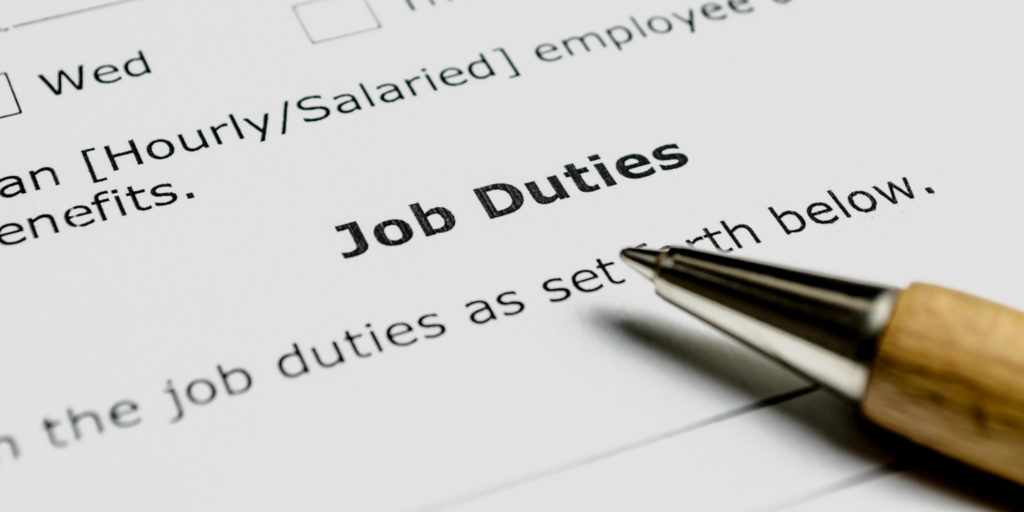A company director is responsible for running a limited company. The Companies Act 2006, the articles of association, and any shareholders’ agreement or directors’ service contracts, set out directors’ duties and responsibilities.
It is an essential and all-encompassing position that varies from business to business. Generally, however, there are 10 key duties and responsibilities to fulfil, which we’ll outline in this blog.
Key Takeaways
- Directors run the company day to day on behalf of the shareholders. Although these two roles are separate, directors are often also shareholders.
- Company directors have 10 statutory roles and responsibilities, including acting within their powers, promoting the company’s success, exercising independent judgement, and avoiding conflicts of interest.
- If a company becomes insolvent, directors’ priorities shift from the shareholders to the creditors to minimise the money the company owes and cannot repay.
Your duties as a company director
Companies operate under the control of shareholders and directors. The shareholders have ultimate control. However, they do not participate in the company’s management. Instead, they appoint directors to run the business on their behalf.
This means a director’s general duty is to manage all critical day-to-day affairs. Essentially, they must ensure they manage the company effectively and adhere to its statutory and contractual obligations. Shareholder approval is generally only required in exceptional circumstances.
- Appoint a new company director here
- Does a director have to be a shareholder?
- How to register a company in 4 simple steps with 1st Formations
Whilst these two roles are separate, it’s common for directors to also be shareholders, enjoying additional rights and obligations, such as dividend payments and voting rights. Nevertheless, it is crucial to understand that the roles are distinct.
Whether or not you are also a shareholder, the 10 duties below will form the basis of your role as a UK company director. The list is made is made up of the 7 “director duties” set in sections 171 to 177 of the Companies Act 2006, followed by additional responsibilities placed upon them elsewhere.
1. Act within your powers
Company directors must carry out their roles and duties in accordance with the Companies Act 2006 and the articles of association, only exercising their powers for their proper purposes.
The articles of association are a set of rules and regulations that govern a company’s operation. They specify the powers and duties of directors, the rights and obligations of shareholders, and how decisions are made.
- Does my company need articles of association?
- Do I need a shareholders’ agreement when I set up a company?
- Can you remove a company director without their consent?
Many companies have a shareholders’ agreement as well as articles. This private, legally binding contract clarifies shareholders’ and directors’ roles, and who can and can’t make decisions in specific circumstances.
To fulfil their duties effectively, all directors must be familiar with the terms in the company’s articles, shareholders’ agreements, and any other relevant documents or contracts relating to their role or the company.
2. Promote the success of the company
Directors have a legal obligation to act in the company’s best interests. They must carry out their duties in a way that will most likely promote the business’s success for its shareholders’ benefit.
Directors must consider the consequences and impact of their decisions on key stakeholders, including employees, customers, business associates, suppliers, the general public, the community, and the environment.
They must also strive to create and maintain a reputation for high standards in company business conduct.
- Business skills you will need to be successful
- A guide to keeping meeting minutes
- 9 reasons why you should hold board meetings in your company
To comply with this duty, directors should document their decision-making wherever possible. For example, in meeting minutes and company resolutions, stating that consideration has been given to such factors.
3. Exercise independent judgment
Company directors must exercise independent judgment and make decisions without external influence or control.
It is perfectly reasonable (and sometimes necessary) to accept professional advice. However, they must always remain impartial, reaching their decisions independently and free from third-party pressure or personal bias.
4. Exercise reasonable care, skill, and diligence
Almost anyone can be a company director, regardless of their qualifications, experience, or skills. However, they must be at least 16 years old and not subject to director disqualification or bankruptcy restrictions.
That said, the role carries great responsibility, so any person appointed as a company director must exercise reasonable care, skill, and diligence.
As per the Companies Act 2006, this means that a director must exercise the same level of care, skill, and diligence that a reasonably diligent person would exercise with:
- The general knowledge, experience, and skills that may reasonably be expected of any person carrying out the same duties as them in relation to the company
- The general knowledge, experience, and skills that they actually possess
No two people are the same, so every director’s understanding and capabilities will be different. Nevertheless, anyone appointed as a director should be able to perform the role reasonably effectively.
5. Avoid conflicts of interest
Company directors must avoid conflicts of interest by averting situations that may divide their loyalties. This especially applies to exploiting property, information, or opportunities in which the director’s interests (directly or indirectly) conflict with the company’s.
In the event of a conflict of interest, the director must first inform the remainder of the board (if there are other directors).
Subject to the company’s articles, the board of directors may authorise the conflict of interest. If they don’t have the power to do so, the matter should be referred to the shareholders.
If the articles or shareholders allow a conflict situation, the director must act appropriately and continue promoting the company’s success.
6. Not accept benefits from third parties
To maintain their integrity and avoid conflicts of interest, directors must not accept benefits from any third party if they are offered to them based on their position in the company. Such conduct could call the director’s and company’s ethics into question.
However, this duty is not violated if accepting the benefit is unlikely to cause a conflict of interest.
7. Disclose interests in proposed transactions or arrangements
Should a director personally benefit from a company transaction or arrangement, they must disclose its nature and extent to the other directors and, in some instances, to the shareholders.
An example may be if a company plans to enter into a contract with a business owned by a director’s spouse, another family member, or a business in which the director owns shares.
A director does not need to declare an interest if it is unlikely to cause a conflict or if the other directors already know about it.
8. Maintain statutory filing and reporting obligations
To comply with UK company law, directors must maintain several limited company filing and reporting obligations. These include (but are not limited to):
- Registering the company for Corporation Tax
- Registering for VAT and Pay As You Earn (PAYE), where necessary
- Preparing annual accounts and Company Tax Returns for HMRC
- Preparing annual accounts for Companies House
- Filing an annual confirmation statement with Companies House
- Paying business taxes in full and on time
- Keeping all necessary statutory company registers and accounting records
- Reporting any change of company details – e.g. a new registered office address, the appointment or removal of directors, a change of details for an existing director, and share allotments or share transfers
- Maintaining company addresses, signage, and stationery
Some companies appoint a company secretary to handle these compliance duties on behalf of the director(s). However, the directors remain responsible regardless of who carries out these tasks.
9. Comply with additional legislation and regulations
Beyond UK company law, directors and their companies may be subject to a range of additional legislation and regulations, including:
- Health and safety laws
- Employment law
- Consumer rights
- Trade descriptions
- Competition law
- General Data Protection Regulation (GDPR)
- Licensing laws
- Environmental regulations
- Food safety and hygiene
- Intellectual property
- Equality and diversity
- Product safety
- Industry-specific laws and regulations
- Legal requirements related to regulated professions
Company directors are responsible for understanding the nature of the business and being aware of all laws and regulations that apply to the company.
This is where a company secretary can help. While they are optional for private limited companies, you may find it beneficial to appoint an experienced company secretary or consult a corporate solicitor if you require expert help and guidance.
10. Report personal income
Most directors receive a salary through (PAYE), an HMRC system that most employers use as part of their payroll. Directors pay Income Tax, Class 1 National Insurance contributions (NIC), and any other required deductions from their earnings through PAYE.
Many directors also receive taxable benefits from their company, while others may be entitled to dividends if they are also shareholders. If directors get untaxed income, they must register for Self Assessment to report and pay tax on these earnings.
In this situation, directors are responsible for registering with HMRC, completing an annual Self Assessment tax return, and paying the relevant taxes (e.g. Income Tax, NIC, and Dividend Tax) on any additional earnings that aren’t processed and taxed through PAYE.
What are a director’s duties when a company is insolvent?
Unlike shareholders, directors are not generally liable for the company’s debts. However, if they breach their legal duties, they can be fined, prosecuted, disqualified from directorship, and held personally liable for debts or claims.
- What decisions can directors make without shareholder consent?
- 13 changes to UK company law – from 4 March 2024
- Limited liability: what does this mean for you and your company?
Liability risk is most prevalent during insolvency (i.e. when a company can’t pay its debts). Directors have specific duties when a company is insolvent, whereby they must shift their priorities to creditors rather than shareholders to minimise the money the company owes and cannot repay.
Thanks for reading
We’ve explained directors’ duties, how their role differs from company shareholders, and when directors may be personally liable.
For more information on setting up and running a limited company, explore the 1st Formations Blog. You’ll find a wealth of information to help you succeed as a company director and small business owner.
If you have any questions about this post, please comment below.
Please note that the information provided in this article is for general informational purposes only and does not constitute legal, tax, or professional advice. While our aim is that the content is accurate and up to date, it should not be relied upon as a substitute for tailored advice from qualified professionals. We strongly recommend that you seek independent legal and tax advice specific to your circumstances before acting on any information contained in this article. We accept no responsibility or liability for any loss or damage that may result from your reliance on the information provided in this article. Use of the information contained in this article is entirely at your own risk.
















Join The Discussion
Comments (6)
Hello,
I hope this message finds you well. I am reaching out to you as some of our clients might be potentially interested in services that your company appears to provide.
I would like to discuss the possibility of referring these clients to your company if it is of interest to you.
Best regards,
Kea Wilson
Business Development Manager
Thank you for your message, Kea. We will be in touch if this is of interest to us.
Kind regards,
The 1st Formations Team
Satisfactory contents
Thank you for your kind words, Twayibu. We’re glad you were satisfied with this blog article.
Kind regards,
The 1st Formations Team
Hi,
I have a few questions that I would be grateful if you could provide your opinion on.
Could you let me know if a director can be involved in a vote when he/she may have a personal interest in the outcome? Can a director be included in the quorum for voting if the vote is for a modification to their own remuneration package, service contract or employment contract?
Do employed directors legally need a written service contract?
Can a shareholder with 40% of the companies shareholding request to see a copy of a directors service contract, employment contract or remuneration package?
The company is run under the model articles for companies incorporated before 2013.
Thanks,
Thanks for the question.
Article 14 of the model articles states that, if there is a conflict of interest in an “actual or proposed transaction or arrangement” then the director in question should not be counted for the purposes of determining if a quorum for a director meeting has been reached and their vote discounted on any decisions.
There are exceptions to this, for example, if the transaction being proposed/undertaken is a subscription of shares. Furthermore, section 175 of the Companies Act 2006 specifically states that the directors have a duty to avoid conflicts of interest. An example might be the company engaging with a supplier in which a particular director has an interest (for example, they are a shareholder).
On the specific case you have provided, I’m afraid we would not be able to advise. There is no legal requirement for a written service agreement to be in place for a director, although it is recommended.
In terms of seeing the service agreement – generally speaking, just by being a shareholder does not necessarily entitle you to see the company’s various records. Article 50 of the model articles of association provides some information on this stating, again, a person does not have access to this information simply by virtue of being a shareholder.
We hope that helps.
Regards,
The 1st Formations Team